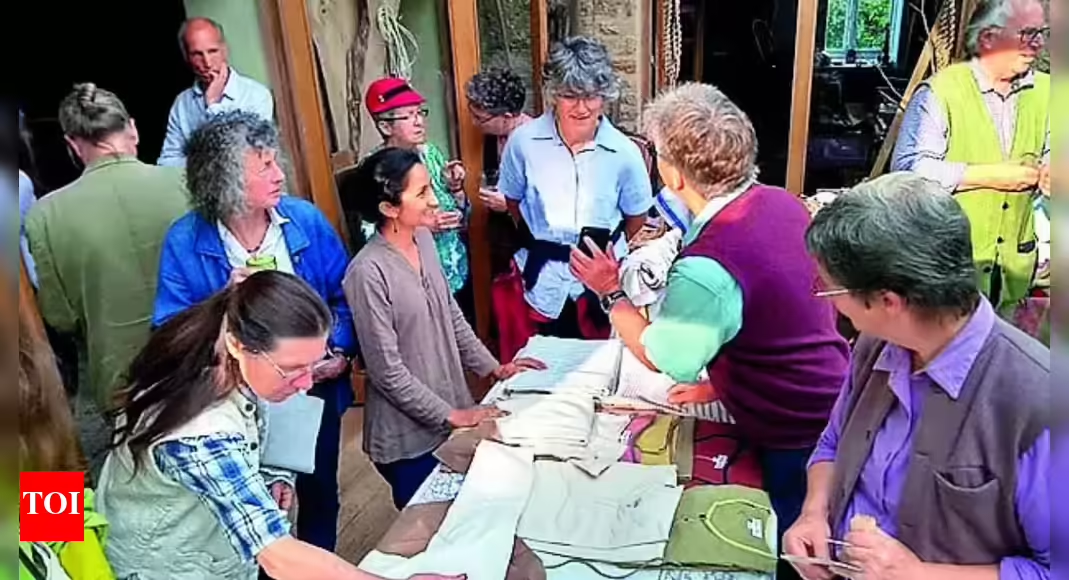AHMEDABAD: The sight of ‘khaadi’ – spelled with an extra ‘a’ – in the London papers annoyed Kishore Shah so much that he created ‘Khadi London’, correcting the typo and deleting the consumerist messaging foisted on the fabric.“Khadi is not just about heritage; it’s about the future because it carries the seeds for regeneration,” Shah said about his UK project.Khadi London is a bridge between young, ethically conscious designers and independent Indian producers such as Udyog Bharti and Khamir in Gujarat, and Gram Sewa Mandal in Maharashtra.Shah, of Indian origin, was born in 1946 in colonial Kenya. He grew up witnessing an apartheid-like system and oppression. His fightback was powered by his quest for nonviolence and regenerative economics – distinctively Gandhian instincts that foster a preference for khadi. “In 2014, I saw a piece on the launch of ‘khaadi’ shops in London malls,” said Shah, now an adviser and co-founder of Khadi London. He said, “The staff didn’t have a clue about what khadi is. The garments, though well-made, did not reflect the spirit of autonomy and regeneration that true khadi embodies.”Shah has walked the talk. In the mid-1960s, a scholarship took him to the US, where he associated himself with the Civil Rights Movement. His intellectual journey led him to India in 1968. He was drawn to the purity of Vinoba Bhave’s Sarvodaya Movement – a vision of self-governing, borderless communities built on equality. He even spent 10 days in jail in 1974 when he joined a student demonstration led by Jayaprakash Narayan.After Shah migrated to the UK in 1996, he continued working on community-driven projects, eventually conceiving Khadi London. Now, the initiative has moved beyond simple retail. Shah and his team have taken the charkha to classrooms, sponsored a khadi-weaving competition at the Chelsea College of Arts, and put swadeshi chic centre stage in London.Khadi London supplied costumes for the National Theatre’s production of ‘The Father and The Assassin’, and taught one of the play’s actors, Paul Bazely, to spin the charkha. The business has since evolved into a not-for-profit social enterprise, with Khadi London focusing on knowledge, research, and education.One of its innovations is ‘circular handspun’, a collaborative research project developing technology to shred recycled textile waste and spin it back into fabric using khadi-production methods. Under the programme, fabrics handspun and handwoven in Kutch have been showcased at global events, including Bharat Tex.A jeans-related feature of the enterprise called ‘digital product passport’ creates a business model built on trust and sweat equity, traits that exemplify Khadi London’s mission to keep the business cycle virtuous.
UK learns that khadi is a cultural assertion | Ahmedabad News

Visited 1 times, 1 visit(s) today

